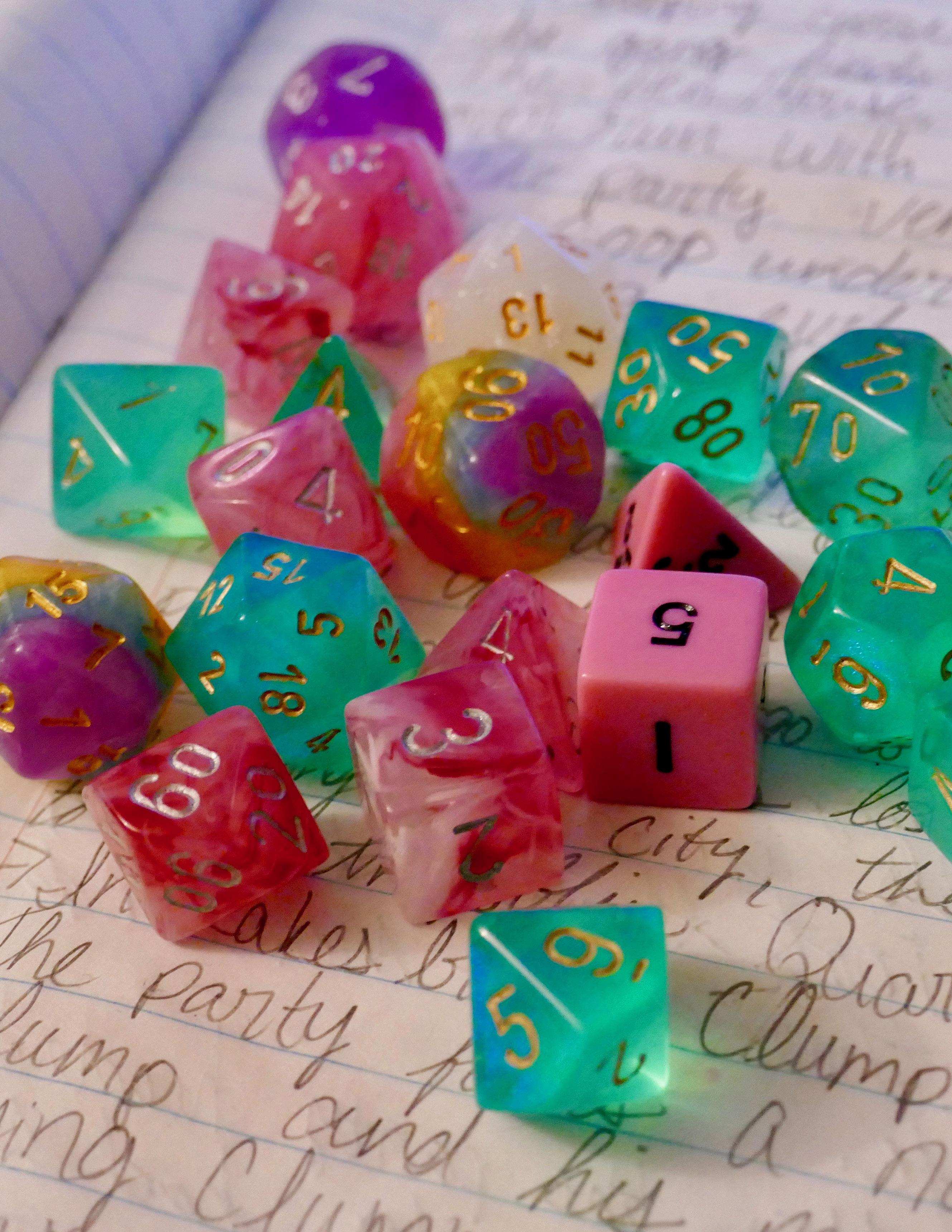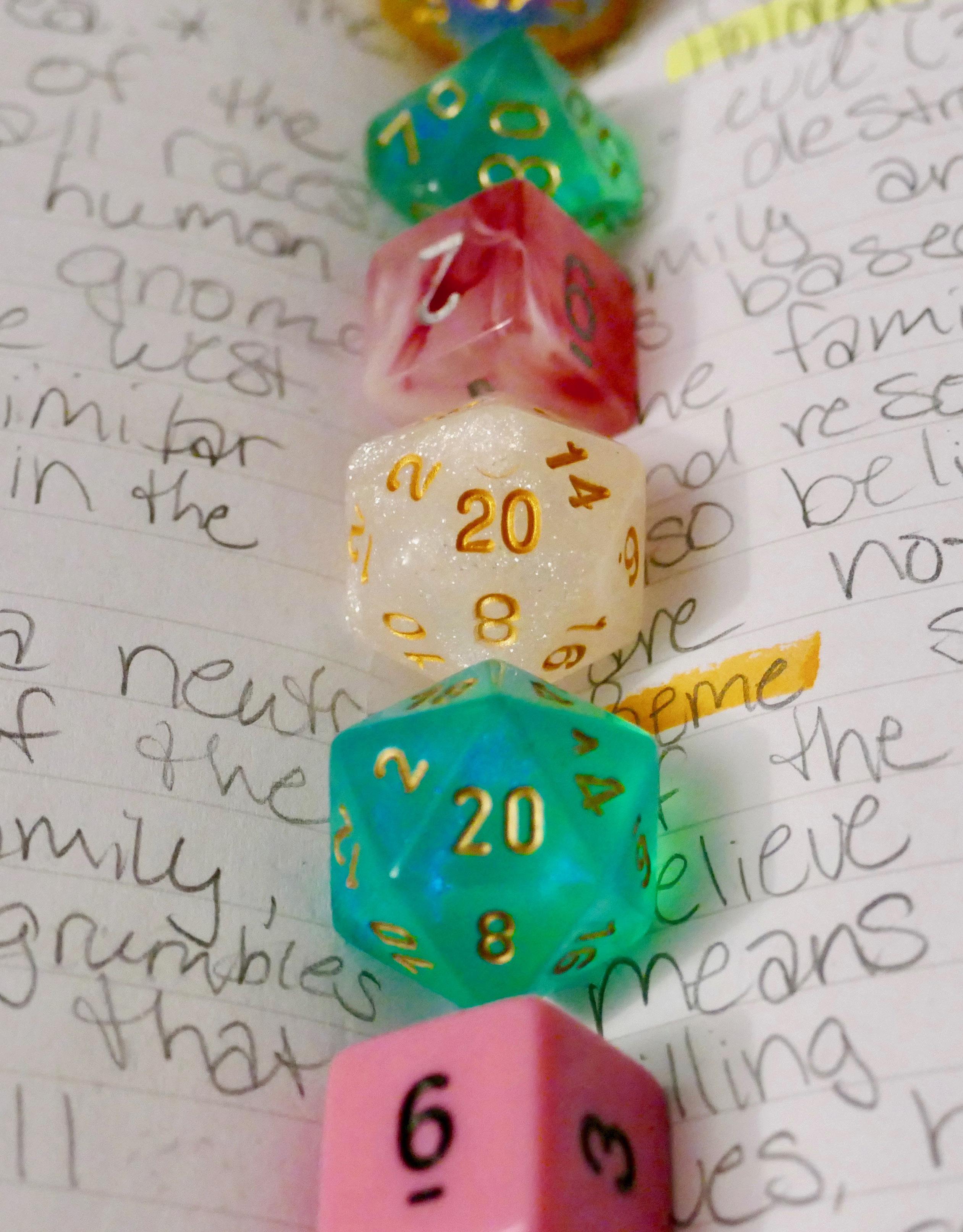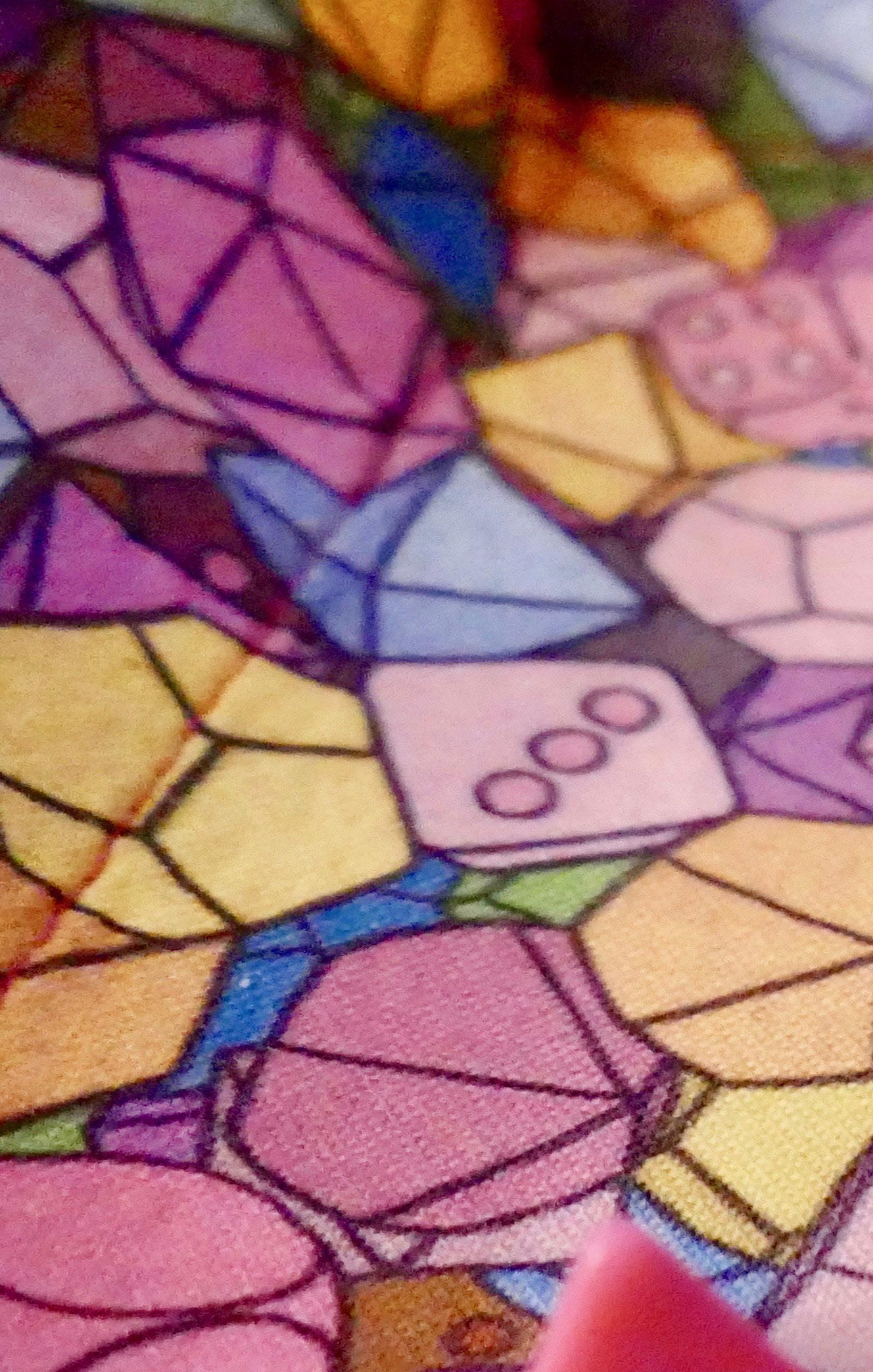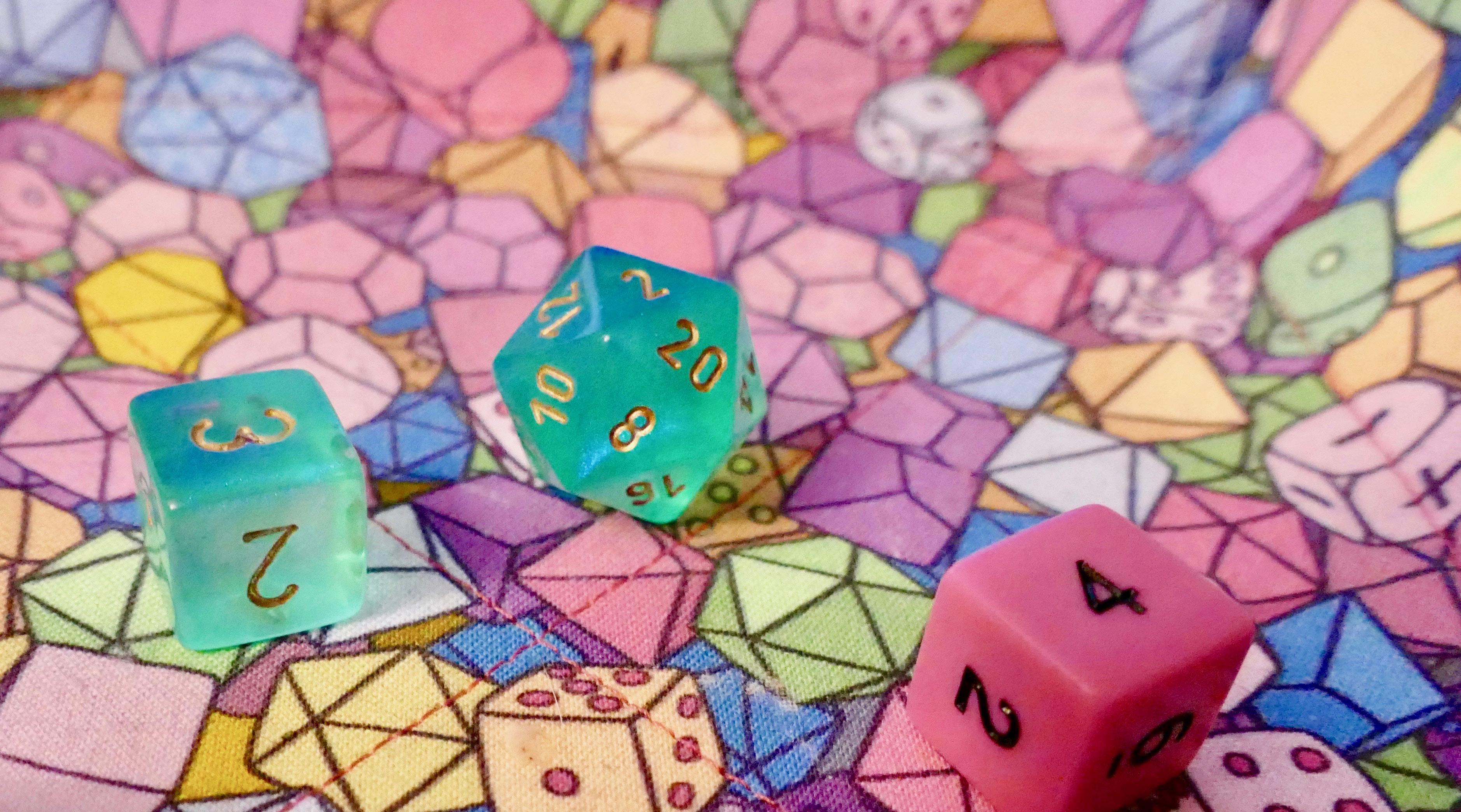
5 minute read
Roll for Initiative
words and photos by Sabrina Merritt
The lands of daring heroes, horrible monsters, and dangerous sword fights didn’t disappear with childhood. Several Hamline students are keeping magic and mystery alive through tabletop roleplaying games, such as Dungeons & Dragons.
Advertisement
Pass by a campus lounge or crowded dorm room on any given night, and you might see a group of college students huddled around laptops, notebooks, and a pile of snacks. What might appear to be a rambunctious study group is actually a party of adventurers in a game of Dungeons & Dragons (D&D).
Dungeons and Dragons, stylized as Dungeons & Dragons, DnD, or D&D, is a tabletop roleplaying game (RPG) often set in medieval-inspired fantasy realms. Games are run by a Dungeon Master (DM) or Game Master (GM), who acts as the storyteller, giving challenges and quests to the players.
Players design characters with fantasy races like elves or orcs and give characters occupations, called classes. These determine how characters navigate through their make-believe worlds, allowing players the chance to be brutal fighters or crafty spellcasters. Outcomes in the game are determined by rolling dice. Players with higher dice rolls will have more successful or more powerful attacks.

Even forty-five years after its initial creation in 1974, Dungeons & Dragons is showing no sign of slowing down.
In the mini-documentary, "Why is D&D So Popular Again?", gaming news outlet IGN claims the game has more players than ever before. The rise of Twitch streaming culture, where Internet personalities are able to live cast their RPG games to thousands of fans, is cited as the main cause for this influx of new players. However, sophomore Hunter Tyler Weber has another guess about D&D’s rise in popularity.
- Hunter Weber
Weber, who was introduced to Dungeons & Dragons through his dad, has been playing tabletop RPGs for most of his life. While D&D is currently in its fifth edition (5E), Weber has also played 2nd edition, 4th edition, and a similar RPG called Pathfinder. For Weber, tabletop games are a way to connect with friends.
“I like to spend time with my friends, and D&D to me is the best way to hang out and interact with them. I often find myself thinking about D&D a lot in between sessions,” Weber said.

Fellow sophomore Emma Coleman also plays for the social factor. “I love being able to sit down with a group of friends and have everyone focused on one thing: being creative and having fun,” Coleman said. “I think people feel lonely a lot, especially with social media. D&D is an activity that makes you interact with people while still giving them a character to let their guard down with."
Coleman has been a part of a fourteen-month long game, referred to as a campaign. She started playing the spring semester of her first year. Her character is currently a level seven half-elf druid with a shady past.
Getting creative with characters is junior Isaac Hanson’s favorite part of the game. Though he played loosely structured sessions in high school, Hanson was happy to find a D&D party within the Hamline swim team.
“[The campaign] had a larger than average party, so I was extremely honored when I was invited to the table to play,” Hanson said. “Thus Herman Grimm, the gamblingaddicted somewhat greedy cleric was born. Herman Grimm was a fan favorite. He was part comedic relief, part caring party father figure.”
Hanson believes his favorite class, warlocks, has the greatest variety for customization, allowing players to really make the character unique.
“As the storyline goes, essentially warlocks get their power from a contract or pact with another powerful being,” Hanson said. “I like the complicated nature of playing a spellcaster, and it’s nice to be the one who does the talking in the party and super fun when your silver-tongued character gets away with something they probably shouldn’t have.”

Junior Christian Buonfiglio agrees with Hanson, saying tabletop games are a form of self-expression. With each character Buonfiglio creates, he learns more about himself and others:
- Christian Buonfiglio
But playing these beloved characters would not be possible without the imagination of Dungeon Masters who lead the games. Junior Levi Jones currently DMs two campaigns, one with high school friends and one with Hamline students. He has been creating mythical worlds and grandiose stories for as long as he can remember.
“For years I would come up with campaign ideas and think of all the cool stories I could tell, yet I had no one to play with,” Jones said. “In high school, I found a group of people and got to play as both a Dungeon Master and a player for a while. Every weekend was time for D&D. We would pull all-nighters, doing nothing but playing, totally immersed in the worlds and stories we had created.”

For many players, D&D brings a little magic to everyday life. Tabletop games offer a rare chance for all kinds of people to get innovative and build community with the power of storytelling. D&D has come a long way since the 1970s, and the once socially stigmatized game is now a beacon for people everywhere.
“RPGs offer us the opportunity to feel like we are doing something important,” Jones said. “Nobody would work a nine-to-five if they could instead explore a magical world, cast spells or fly a spaceship. Our imaginations outpace what we are allowed to do, and more and more we rely on our imaginations to give us the joys that we can’t find in day-to-day life.”









